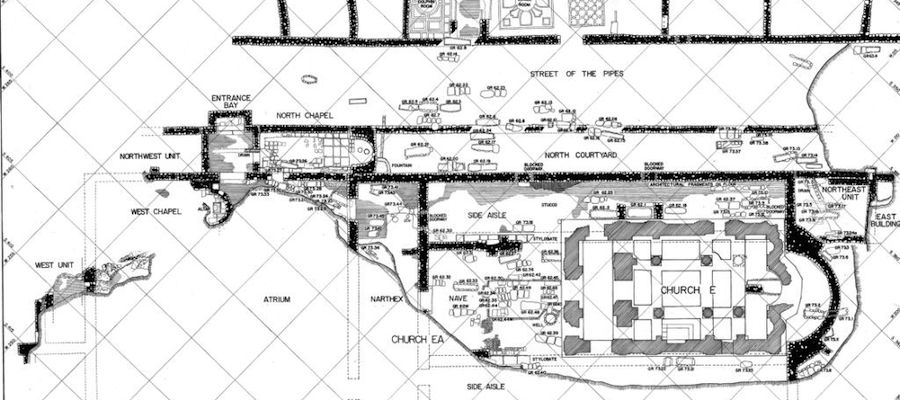Hans Buchwald. Churches EA and E at Sardis. Archaeological Exploration of Sardis Reports 6. Harvard University Press, 2015.
From Harvard University Press
Sardis was home to one of the earliest known Christian communities, appearing among the Seven Churches of Asia in the mid-first century AD. Between 1962 and 1973, the Archaeological Exploration of Sardis excavated two superimposed churches at the ancient site, one early Christian, one Byzantine. This richly illustrated volume documents the architecture and history of these buildings from the fourth to the sixteenth century.
The early Christian church, an aisled basilica with narthex and atrium, both decorated with floor mosaics, had a long and complicated history, starting in the fourth century and continuing into the ninth century. Built over its remains is a Byzantine church dating to the little-known Lascarid period, when Constantinople had fallen to the Fourth Crusade and western Asia Minor was home to an independent Christian empire. This building’s standing remains, scattered domes, and vaulting fragments support the reconstruction of an inscribed-cross church with six columns and five domes, enriched on the exterior by a variety of brick and terracotta decoration. Together, these buildings cast new light on a millennium of Christian worship at Sardis, from the first official recognition of Christianity until the end of the Byzantine era.
